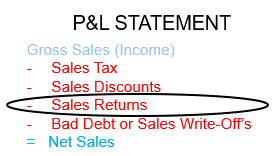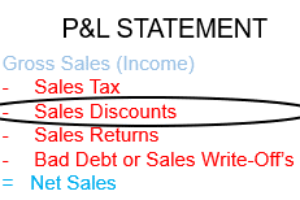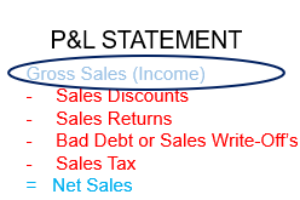
A business with high sales returns has sales and operating problems. In most cases, sales and operations aren’t on the same page.
Too often, in pursuing “the close,” sales will over-promise, putting ops in a compromised position. The other leading cause of sales returns is product defects. No matter what triggers the Sales Return, it is lost Gross Profits.
Overview
A Sales Return is a purchase experimentation failure. It reflects the refund of a customer’s purchase triggered by their dissatisfaction with the solution your product was thought to provide. Most sales returns are a sales process failure where there was likely an over-promise by sales that led to customer expectations that your product and services are not positioned to meet.
At best, a Sales Return is simply a reduction from Gross Sales. You refund them their purchase amount, and they don’t complain about their experience with your business. Unfortunately, this is rarely the case. Most of the time, the dissatisfied customer not only takes back the money they paid you. They complain to at least ten people about the horrible experience they had with your business.
You protect against sales returns by not selling customers something they don’t need. The best sales process involves helping people buy the things they need and want. The worst sales process is badgering someone to buy from you only to have them regret their purchase and seek their money back. If the chances are high that a customer’s purchase will likely be returned, it is easier for all involved if you don’t complete the sales transaction.
You also protect against sales returns by ensuring that operations deliver quality products and services. Expecting a customer to be satisfied with poor quality is an unacceptable business operations practice that should never be tolerated.
The accounting effect of a Sales Return is shown in the difference between Gross Sales and Net Sales. It is essential to record sales returns to appreciate how much people buy and return. Should the sale involve, sales commissions paid, you want to ensure that the sales return is attached to the salesperson so that the associated commission paid is clawed back since the sale did not hold. If the sales return is related to quality, you want to note that so operations management knows what they have cost the business in terms of Gross Sales and Net Profit.

